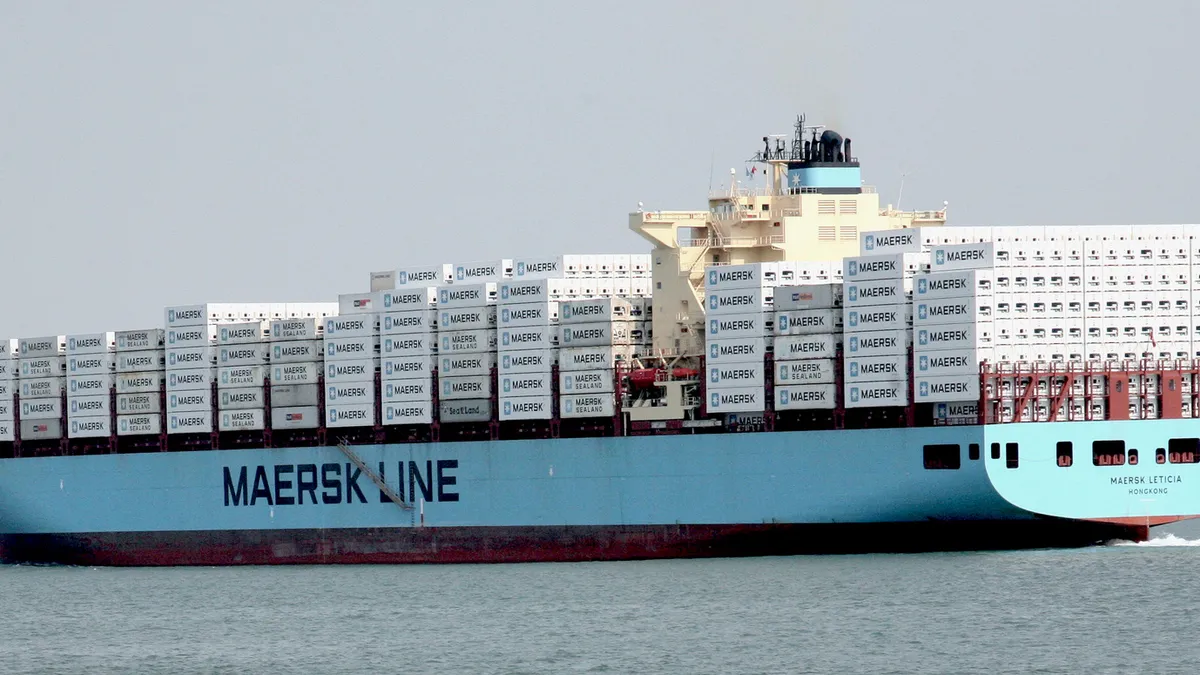Dive Brief:
- A.P. Moller-Maersk said the ocean side of its business had a good fourth quarter as shippers rushed to move product before the U.S.-China trade war escalated further, but a laundry list of complications in 2019 makes for soft growth projections. Revenue was up 9.3% year-over-year for the carrier at the end of 2018, heavily influenced by the acquisition of Hamburg Süd, which closed at the end of 2017.
- Maersk executives expect shipment volumes to grow around 2% in 2019, but they offered a strong caveat that multiple sources of uncertainty could easily throw off those expectations.
- "We don't believe that the China and U. S. deal will be the last we have heard about trade tensions in 2019 because there's also clearly an outstanding discussion between Europe and the U.S." CEO Søren Skou said.
Dive Insight:
The U.S.-China trade war, IMO 2020, Brexit, economic weakness in China ... executives on the carrier's fourth-quarter earnings call made it clear that due to the shifting winds of international trade and industry regulation, the path ahead for Maersk is foggy.
"We see weaknesses, in particular, of China and Europe," Skou said. He expects container demand growth to slow this year, though he could not say to what extent. Plus, the carrier expects a "significant increase in fuel prices" in the run-up to enforcement of IMO 2020 sulfur standards.
"I think the guidance reflects the high level of uncertainty around trade, around macro environment, around the implementation of the IMO 2020 at the end of the year, the volatility we have seen in fuel price. I mean, these are all factors that can swing and have a massive impact, as we've seen some of them play out in 2018," added CCO Vincent Clerc.
While analysts sought assurances that contract negotiating season, currently in progress, was going well, and Clerc confirmed it was, he added that it's the shorter lead business that is now a concern as uncertainty threatens already slim margins.
"I just want to remind you also that half of our business is actually short-term business that we renegotiate either monthly or weekly, and that's really where a lot of the risk ... is going to play out, because it's a significant part of our business and it's an extremely volatile part of the business," Clerc said.
Logistics and supply chain services, which Maersk and other carriers are building to diversify their offering and capture more margin, is not looking great either. Clerc called Maersk's freight-forwarding revenue "unsatisfactory."
But it's not all despair. 2018 was a transitional year for Maersk, integrating Damco (less freight forwarding) and Maersk Line under one roof, and integrating Hamburg Süd, and the carrier still managed improvement in capacity and efficiency.
"We have ended the year in a much better shape than we ended the previous year. That obviously means a better environment to start the year into and a better environment to negotiate contracts into," Clerc said. It's the hazy future that makes last year's gains cold comfort going forward.













